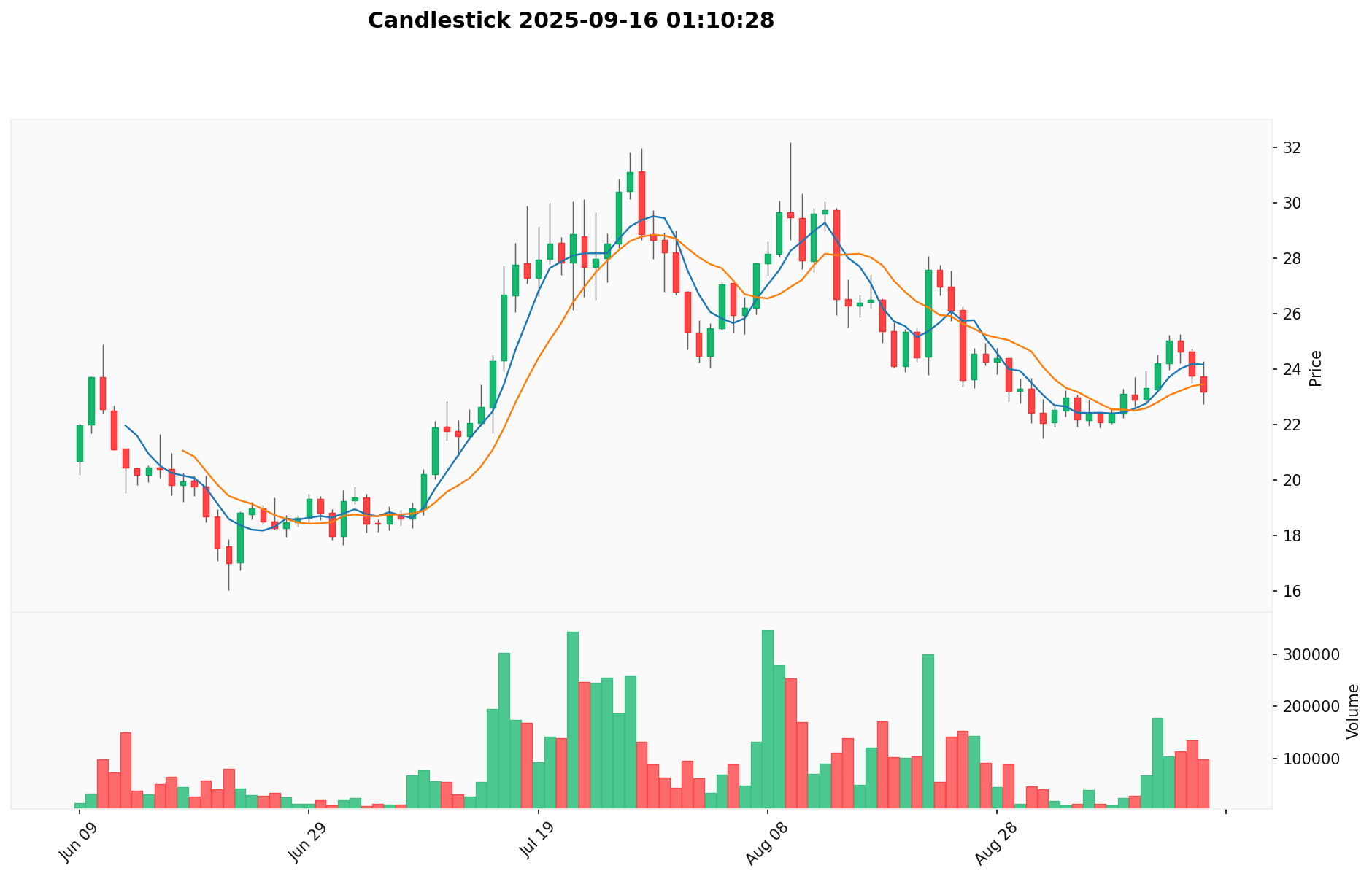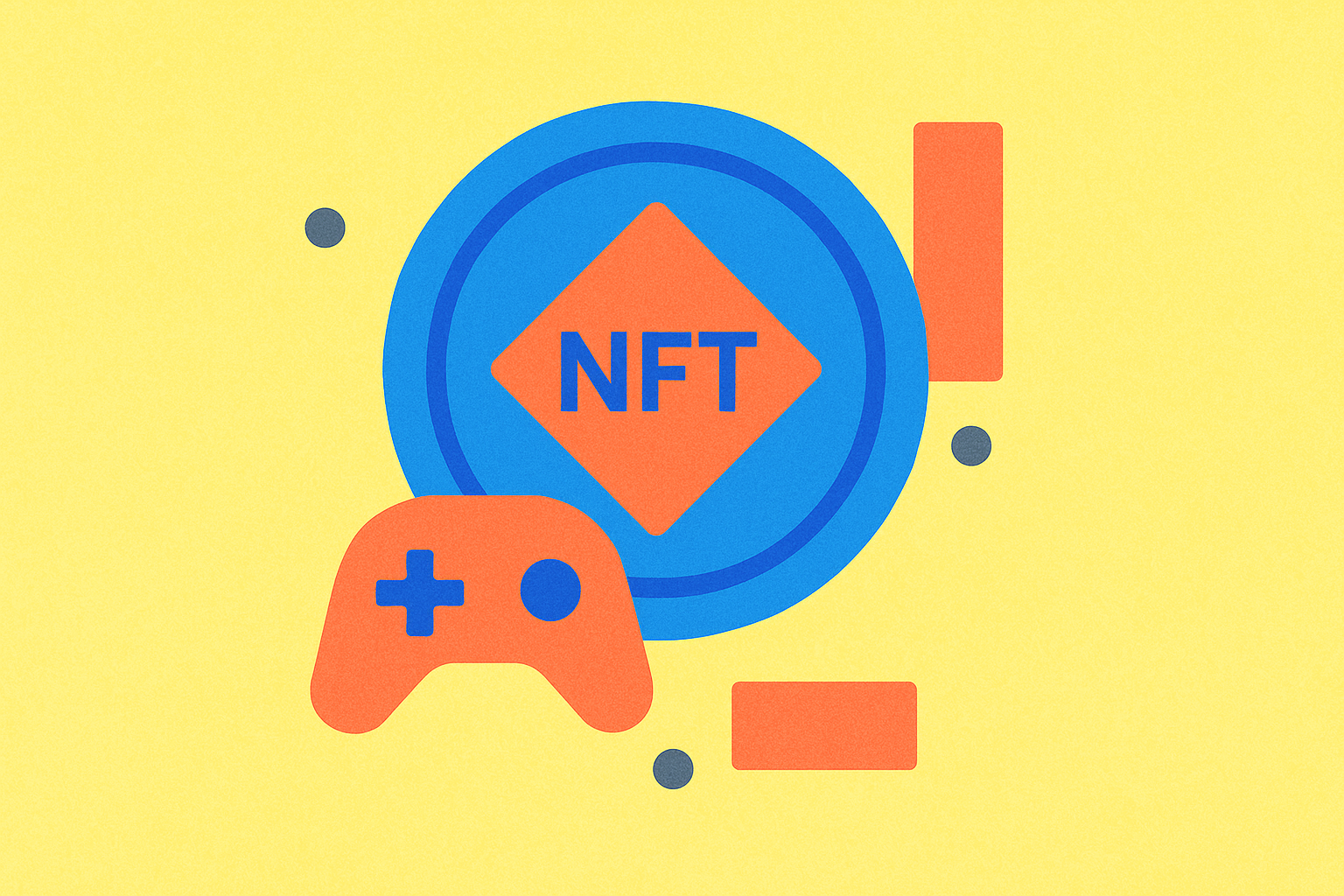ENS Nedir: Ethereum Ad Hizmeti Hakkında Kapsamlı Bir Rehber

ENS'nin Konumlandırması ve Önemi
2017'de, Ethereum Vakfı tanıtıldıENS (ENS), çözmeyi amaçlayan blockchain alanında insan tarafından okunabilir adreslerin zorluğu.
As the ilk merkeziyetsiz alan adı sistemi üzerinde Ethereum, ENS önemli bir rol oynarkullanıcı deneyimini ve erişilebilirliği artırmakWeb3ekosistem.
O tarihten itibaren 2025, ENSolmuşturEthereum ve Web3 uygulamaları için bir köşe taşı altyapı, övünerek 65.000'den fazla cüzdan sahibive aktif bir geliştirici topluluğuna. Bu makale, teknik mimarisine, piyasa performansına ve gelecekteki potansiyeline dalacaktır.
Kökeni ve Gelişim Tarihi
Doğum Arka Planı
ENS, Ethereum Vakfı tarafından yaratıldı.2017, çözmeyi hedefliyor blok zinciri adresleri ile etkileşim kurmanın karmaşıklığı.
Bağlamında doğduEthereum'un artan benimsenmesi ve blockchain alanında kullanıcı dostu arayüzlere olan ihtiyaç, amacıyla blok zinciri uygulamalarıyla etkileşimleri basitleştirmestatükoyu değiştirmek için.
ENS'nin lansmanı yeni olanaklar sunduEthereum ekosistemindeki hem geliştiriciler hem de kullanıcılar.
Önemli Dönüm Noktaları
- 2017: Ana ağın lansmanı, başarıinsan tarafından okunabilir Ethereum adresleri.
- 2021: Büyük güncelleme getiriyor ENS yönetim tokeni, topluluk yönetimini mümkün kılma.
- 2021: Benimseme arttı, fiyatı tüm zamanların en yüksek seviyesine itti $83.4.
- 2023: Ekosistem genişlemesi, ile birçok DApp ve cüzdanın ENS entegrasyonu.
Destek ile ENS DAO ve daha geniş Ethereum topluluğu, ENS teknolojisini, güvenliğini ve gerçek dünya uygulamalarını optimize etmeye devam ediyor.
ENS Nasıl Çalışır?
Merkeziyetsiz Kontrol
ENS, herhangi bir tekil varlık veya hükümetin kontrolünden bağımsız olarak, merkeziyetsiz Ethereum ağı üzerinde çalışmaktadır.
Bu merkeziyetsiz yapı, şeffaflık ve dayanıklılık sağlar, kullanıcılara dijital kimlikleri üzerinde daha fazla özerklik verir.
Blok Zinciri Çekirdeği
ENS'in işlevselliği, tüm ENS kayıtlarını ve güncellemelerini kaydeden, kamuya açık, değiştirilemez bir dijital defter olan Ethereum blok zincirinin üzerine inşa edilmiştir.
İşlemler bloklar halinde gruplanır ve kriptografik hash'ler aracılığıyla birbirine bağlanarak güvenli bir zincir oluşturur.
Herkes kayıtları görüntüleyebilir, aracı olmadan güven tesis eder.
Adaletin Sağlanması
ENS, Ethereum'in avantajlarından faydalanır.Hisse Kanıtı (PoS)işlemleri doğrulamak ve ağ güvenliğini sağlamak için konsensüs mekanizması.
Doğrulayıcılar, ağ güvenliğine katkılarından dolayı ödüller alarak ETH stake ederek ve düğüm çalıştırarak katılırlar.
Güvenli İşlemler
ENS, işlemleri güvence altına almak için açık-özel anahtar kriptografisi kullanır:
- Özel anahtarlar işlemleri imzalamak ve ENS alan adlarının sahipliğini kanıtlamak için kullanılır
- Açık anahtarlar(Ethereum adresleri) ENS alan adlarını almak için kullanılır
Bu mekanizma ENS kayıtlarının ve transferlerinin güvenliğini sağlar, kullanıcılar için takma ad gizliliğini korur.
ENS ayrıca şu gibi ek güvenlik özelliklerini de uygularregistrar sözleşmeleri ve resolver sözleşmelerialan sahipliğini ve çözümlemesini yönetmek için.
ENS Pazar Performansı
Dolaşım Genel Görünümü
O tarihten itibaren 16 Eylül 2025, ENS'in dolaşım arzı 33.165.585,054507963 token, toplam arzı 100.000.000.
Fiyat Dalgalanmaları
ENS, tüm zamanların en yüksek seviyesine ulaştı$83.4 üzerinde 11 Kasım 2021, genel kripto piyasası boğa koşusu ve Ethereum tabanlı hizmetlerin artan benimsenmesi tarafından yönlendirilmektedir.
En düşük fiyatı şuydu $6.69, meydana gelen 19 Ekim 2023, muhtemelen daha geniş piyasa düşüşleri ve kripto alanındaki düzenleyici belirsizliklerden kaynaklanıyor.
Bu dalgalanmalar, Ethereum ekosistemini ve merkeziyetsiz alan hizmetlerini etkileyen piyasa duyarlılığını, benimseme eğilimlerini ve dış faktörleri yansıtır.
Güncellemeleri görüntülemek için tıklayınENS piyasa fiyatı

Zincir İçi Metrikler
- Günlük İşlem Hacmi: $2,296,205.78829 (ağ etkinliğini gösteriyor)
- Aktif Adresler: 65,969 (kullanıcı etkileşimini yansıtıyor)
ENS Ekosistem Uygulamaları ve Ortaklıkları
Temel Kullanım Alanları
ENS ekosistemi çeşitli uygulamaları desteklemektedir:
- Alan Adları: ENS, insan tarafından okunabilir Ethereum adresleri sağlar, kripto işlemlerini ve etkileşimlerini basitleştirir.
- Web3 Kimliği: ENS alan adları, Web3 alanında dijital kimlikler olarak hizmet eder.
Stratejik Ortaklıklar
ENS, Ethereum tabanlı birkaç proje ve cüzdan ile ortaklıklar kurmuştur, bu da ekosistem genelinde entegrasyonunu ve kullanılabilirliğini artırmaktadır.
Tartışmalar ve Zorluklar
ENS şu zorluklarla karşı karşıyadır:
- Teknik Zorluklar: Ethereum ağının doğasında bulunan ölçeklenebilirlik sorunları.
- Regülasyon Riskleri: Düzenleyici kuruluşlar tarafından menkul kıymet olarak potansiyel sınıflandırma.
- Rekabetçi Baskı: Diğer blok zincirlerinde alternatif adlandırma sistemlerinin ortaya çıkışı.
Bu sorunlar, topluluk ve piyasa içinde tartışmalara yol açtı ve ENS için sürekli yeniliği teşvik etti.
ENS Topluluğu ve Sosyal Medya Atmosferi
Hayran Heyecanı
ENS topluluğu canlıdır, Eylül 2025 itibarıyla 65,969'dan fazla sahibine sahiptir. X'te, #ENS gibi etiketler, özellikle büyük güncellemeler veya fiyat hareketleri sırasında sıkça trend olmaktadır.
Sosyal Medya Duygusu
X üzerindeki duygu, karışık görüşler gösteriyor:
- DestekçilerENS'in Ethereum adreslerini basitleştirme konusundaki faydasını ve Web3 kimliğindeki rolünü övün.
- EleştirmenlerEthereum'un ölçeklenebilirlik sorunlarının ENS kullanılabilirliğini etkileyen endişelere odaklanın.
Son trendler, özellikle Web3 benimsemesi arttıkça genel olarak olumlu bir ruh halini göstermektedir.
Gündem Konuları
X kullanıcıları, ENS'in merkeziyetsiz kimlikteki rolünü, yönetişim modelini ve diğer blockchain ağlarıyla olası entegrasyonlarını aktif olarak tartışıyor.
ENS için Daha Fazla Bilgi Kaynağı
- Resmi Web Sitesi: Ziyaret etENS resmi web sitesiözellikler, kullanım durumları ve son güncellemeler için.
- X Güncellemeleri: X'te, ENS kullanılır @ensdomains, teknik güncellemeleri, topluluk etkinliklerini ve ortaklık haberlerini kapsayan gönderilerle.
ENS Gelecek Yol Haritası
- Devam eden: ENS protokolü ve yönetim sistemi üzerinde sürekli iyileştirmeler.
- Ekosistem Hedefleri: Daha fazla Web3 uygulaması ve cüzdanları ile entegrasyonu genişletin.
- Uzun vadeli vizyon: Web3 alanında merkeziyetsiz adlandırma ve kimlik için standart haline gelin.
ENS'e Nasıl Katılınır?
- Satın Alma Kanalları: Gate.com'da ENS tokenleri satın alın
- Depolama Çözümleri: ENS destekleyen Web3 cüzdanlarını güvenli depolama için kullanın
- Yönetimde Yer Al: ENS DAO üzerinden topluluk kararlarına katılın
- Ekosistemi Kur: ENS'i projelerinize entegre etmek için ENS geliştirici belgelerini ziyaret edin
Özet
ENS, Ethereum blok zincirinde dijital kimliği yeniden tanımlayarak insan tarafından okunabilir adresler ve Web3 kullanıcı adları sunar. Aktif topluluğu, zengin kaynakları ve güçlü piyasa performansı, onu kripto para alanında öne çıkarıyor. Ethereum ile bağlantılı düzenleyici belirsizlikler ve teknik sınırlamalar gibi zorluklarla karşılaşmasına rağmen, ENS'in yenilikçi ruhu ve net yol haritası, onu merkeziyetsiz teknolojinin geleceğinde önemli bir oyuncu olarak konumlandırıyor. İster yeni başlayan olun ister deneyimli bir kullanıcı, ENS'i izlemeye ve katılmaya değer.
SSS
Kriptoparalarda ENS ne anlama geliyor?
ENS, Ethereum Ad Hizmeti'nin kısaltmasıdır. İnsan tarafından okunabilir isimleri Ethereum adreslerine bağlar, böylece kripto gönderimini ve alımını kolaylaştırır. Bu, blockchain adresleri için bir alan adı sistemi gibidir.
Tıbbi terimlerde ENS nedir?
ENS, Enterik Sinir Sistemi'ni temsil eder; gastrointestinal trakti kontrol eden bir nöron ağıdır. Sindirimi ve bağırsak hareketliliğini merkezi sinir sisteminden bağımsız olarak düzenler.
ENS ne için kullanılır?
ENS (Ethereum Name Service), Ethereum adreslerini basitleştirmek için kullanılır ve kullanıcılara uzun, karmaşık cüzdan adreslerini insan tarafından okunabilir isimlerle değiştirme imkanı tanır; bu da Ethereum ekosistemindeki işlemleri ve etkileşimleri daha kullanıcı dostu ve erişilebilir hale getirir.
ENS'nin anlamı nedir?
ENS, Ethereum Name Service'in kısaltmasıdır. Ethereum blockchain'inde inşa edilmiş merkeziyetsiz bir isimlendirme sistemidir ve insan tarafından okunabilir adresleri makine tarafından okunabilir tanımlayıcılara çevirerek kripto para işlemlerini ve merkeziyetsiz uygulamalarla etkileşimleri basitleştirir.

Soulbound Blockchain Token’larıyla Geleceği Keşfetmek

Ethereum’in Alan Adı Sistemi: ENS Detaylarıyla Açıklanıyor

Web3 Ekosisteminde Soulbound Token'ların İncelenmesi

Ethereum Name Service’ı Anlamak: ENS’nin Kripto Ekosistemindeki Önemi

ENS Alan Adı Satın Alma Rehberi

Ethereum Name Service’ı Anlamak: Kripto Domain Adları Hakkında Kapsamlı Rehber

Başarılı Kripto Para Ticareti İçin Önemli Dönüm Noktaları







